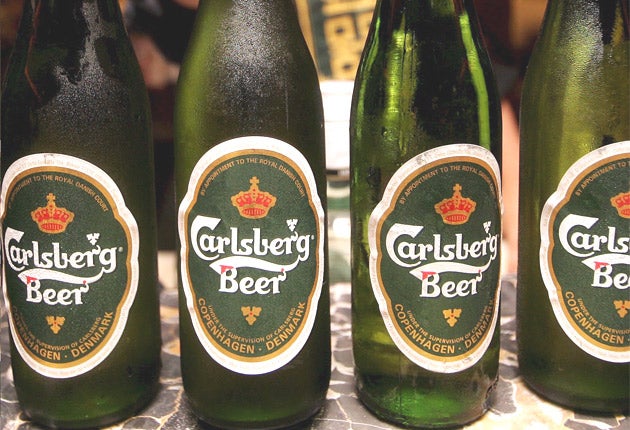Drink half a dozen beers every day and have a healthier heart
Teetotallers more likely to have heart attack than drinkers, study shows

Drinking a bottle of wine a day, or half a dozen beers, cuts the risk of heart disease by more than half in men, it has been shown.
In one of the largest studies of the link between alcohol and heart disease, researchers have found that the protective effects of a daily tipple are not limited to those who drink moderately but also extend to those who consume at what are conventionally considered to be dangerously high levels.
The researchers, who are from the public health department of the Basque government in San Sebastian, a region with one of the highest drinking rates in Europe, warned that alcohol caused millions of deaths a year around the world from other causes and their findings should not be taken as a licence to drink to oblivion. British scientists said the study, published in the journal Heart, was "flawed".
The research was conducted among 15,000 men and 26,000 women aged from 29 to 69 who were followed for 10 years.
The results showed that those who drank a little – a glass of wine or a bottle of beer every other day – had a 35 per cent lower risk of a heart attack than those who never drank. Moderate drinkers, consuming up to a couple of glasses of wine a day or a couple of pints of ordinary bitter, had a 54 per cent lower risk.
The surprise was that heavy drinkers consuming up to a bottle of wine or six pints of ordinary bitter had a similar 50 per cent reduction in risk of a heart attack to moderate drinkers. Those drinking at even higher levels were still half as likely to suffer a heart attack as the teetotallers.
Larraitz Arriola, who led the study, said alcohol caused 1.8 million deaths a year around the world and 55,000 deaths among young people under 30 in Europe alone. "The first thing to say about our research is that alcohol is very harmful. If you drink heavily, you should drink moderately. The more you drink, the worse off you will be." The researchers only looked at the effect of alcohol on the heart and confirmed what 30 years of studies have shown – that it is protective. The effect was independent of the form in which the alcohol was taken, as beer, wine or spirits. However, people who only drank wine had slightly less protection.
Spain is the world's third-largest wine producer and ninth-largest beer producer, and is ranked sixth in the world in terms of alcohol consumption. Average total alcohol consumption in San Sebastian is 41.4 grams per head a day, equivalent to half a bottle of wine, three 330ml bottles of strong (5 per cent) lager or just under a quarter bottle of whisky.
British specialists said the protective effect of alcohol on the heart is only seen in men over 40. Robert Sutton, professor of surgery at the University of Liverpool, said: "This study suffers from several flaws, so cannot be taken to suggest that high levels of alcohol intake can improve health. Most importantly, all other alcohol-related diseases were completely ignored so that it is a highly biased view of the effects of alcohol."
Join our commenting forum
Join thought-provoking conversations, follow other Independent readers and see their replies
Comments